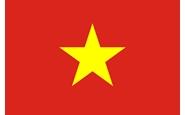Government/Policy

January 9, 2018
Vietnam Steelmakers Challenge AD/CVD Determinations
Written by Sandy Williams
Vietnam steelmakers are asking for government assistance in defending the industry from U.S. antidumping and countervailing investigations on galvanized and cold rolled steels. The Vietnam Steel Association (VSA) has requested that the Ministry of Industry and Trade intervene, including filing a suit with the World Trade Organization to counter Department of Commerce actions that it believes are inconsistent with international trade laws.
Vietnam shipments of CORE and cold-rolled steel to the U.S. increased dramatically following a decision by Commerce to impose prohibitive AD/CVD measures on imports of the products from China. Vietnam producers say the increase in exports was a result of U.S. businesses looking for new suppliers.
Commerce claims Chinese steel substrate is being shipped to Vietnam to circumvent the U.S. tariffs. The substrate is then further transformed into CORE and cold rolled sheet by Vietnam producers and exported to the United States.
VSA Chairman Ho Nghia Dung said Vietnam steel manufacturers have invested millions in technology to produce high-quality value-added steel products, including galvanized and cold-rolled, that meet the strict standards of the U.S. and Japanese markets. Vietnam respondents in the DOC investigation presented evidence that Vietnam-produced galvanized steel has a high conversion rate of 30-50 percent, in-line with WTO rules of origin and international standards.
Steel for Vietnam products is imported from several countries, which are also subject to U.S. duties, such as Taiwan and South Korea. VSA fears that an affirmative decision by Commerce on circumvention will set a precedent that will impact more of its suppliers.
If the current AD/CVD rates for Chinese CORE and cold rolled are extended to Vietnamese products, Vietnam producers will lose the U.S. market and suffer huge industry losses. If the final DOC determinations stand, antidumping and countervailing duties on imports of CORE could be at rates of 199.43 percent and 39.05 percent, respectively. Cold rolled steel could be subjected to 265.79 percent antidumping rates and 256.44 percent countervailing rates. Final determination by Commerce is expected Feb. 16.
“The MoIT move will not only be one that protects Vietnamese steel businesses, but also one that sends a message to the U.S. that Vietnam will continue to fight vigorously against violations of international commitments and protect the legal and legitimate interests of Vietnamese exporters through international institutions,” said VSA.







